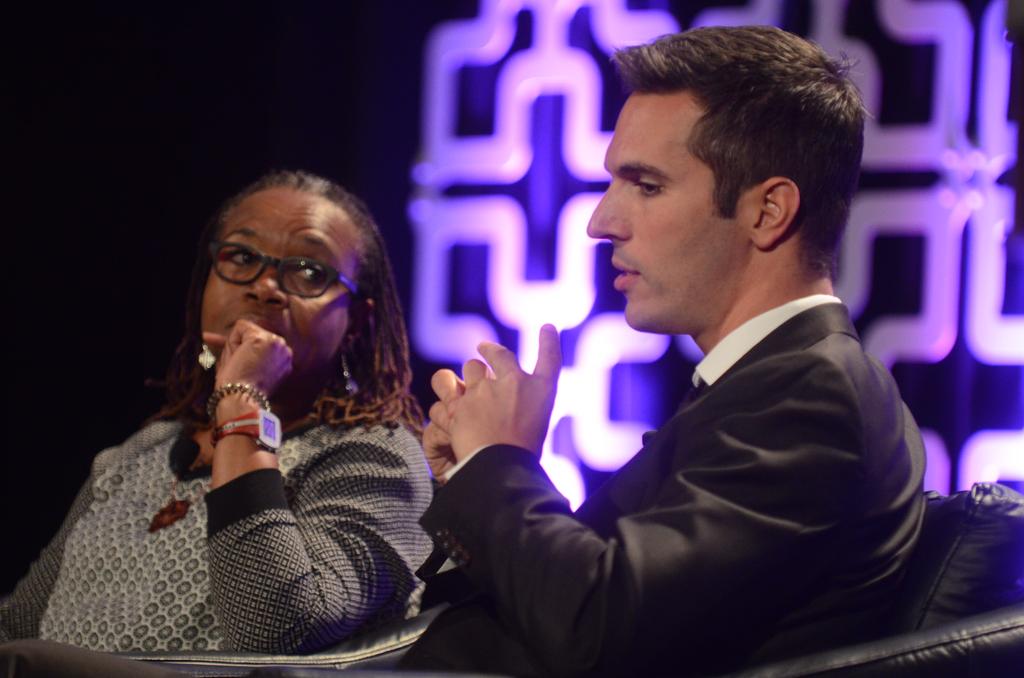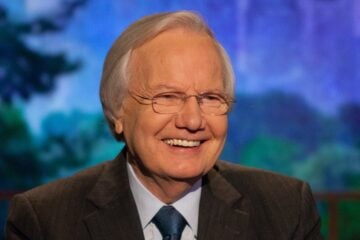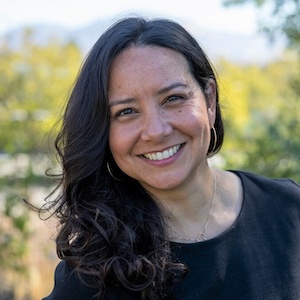New host lineup at ‘All Things Considered’ brings drive to ‘freshen up’ show

Watson (left) and Shapiro discussing changes to ATC at the PRPD conference in Philadelphia on Wednesday. (Photo: Rich Orris/PRPD)

Watson (left) and Shapiro discuss changes to ATC at the PRPD conference in Pittsburgh Wednesday. (Photo: Rich Orris, PRPD)
PITTSBURGH — With new hosts and leadership in place, NPR’s All Things Considered will aim to tell stories in new ways and on a wider range of platforms, according to panelists at the Public Radio Program Directors conference who discussed the show’s future with attendees.
Weekend Edition Saturday host Scott Simon led a lunchtime panel discussion Wednesday with new ATC executive producer Carline Watson and new host Ari Shapiro. Shapiro and Kelly McEvers joined Robert Siegel and Audie Cornish as hosts Sept. 21.
Going forward, Watson said, ATC’s philosophy will be “not being afraid to try new things.”
“It’s very easy for us to get into this — I don’t want to say rut — but a sort of . . . ‘Oh, we don’t do that,’” Watson said. “I think we can change that. I think we need to say, ‘Yes, let’s try it.’ Nobody’s going to die. We’re only making radio. . . . I think the keyword here is, try new things. If they don’t work, move on. And let’s have some fun.”
“What I’d like to do is freshen [ATC] up a little bit,” Watson added. “Bring some new voices into the mix. Perhaps some different ways of telling the stories that we do, thinking really particularly about how we use a lot of the tools that are available to us, not just on the radio but through social media on some of it.”
Shapiro said he’s especially fond of using the live video streaming app Periscope and other social media platforms to connect with new audiences.
“Periscope, like Twitter, like Facebook, like Snapchat, like all these other platforms, are ways to reach an audience that might not know about us,” he said. While tweeting in Turkey about refugees, Shapiro realized that his tweets were a firsthand source of news for his followers.
“This was not a complement to the NPR coverage,” he said. “. . . [T]o be able to get where audiences are . . . it’s just another way of doing our journalism, another way of finding new audiences, another way of going to where people are. I hope ATC will be able to do more.”
With four hosts, Shapiro said, the show’s anchors should be able to experiment more with engagement on social media. According to Watson, each of the four hosts will rotate between being on air and on assignment, spending two weeks at a time on each. The overall goal is to do “a lot more original storytelling on the show,” Watson said.
Shapiro also discussed the importance the show is placing on diversity among its hosts and its impact on the program.
“If you look across the group of us, we represent different generations, different genders, races, geographic backgrounds, sexual orientation, religion, educational background,” Shapiro said. “Those are not just boxes to check. What that means, in a very practical way, is that each morning when we come to the 9:30 editorial meeting we have seen different things on our Facebook feeds, we have gossiped about different things with our friends, . . . we’ve read different books, magazine articles and newspapers.
“And if we were all to show at that editorial meeting having read only the same things we would have a much less interesting show. So the range of people making this show everyday will hopefully . . . make us sound more like America.”
“NPR sounds like America”
Introducing the panel, NPR CEO Jarl Mohn called on stations to record people in their communities speaking “in every possible accent you can imagine” and saying the phrase “NPR sounds like America.” The audio will be used in a marketing initiative that will roll out in January, he said.
“NPR is perceived as being too elitist, being too East Coast or West Coast . . . too old, too white, too boring,” Mohn said.
“Great marketing, taglines, positioning liners should always at least slay one major marketing dragon,” he added
After Mohn introduced the ATC panel, Simon joked, “Nothing makes a more effective statement that we’re not boring like a panel discussion.”
Related stories from Current:






